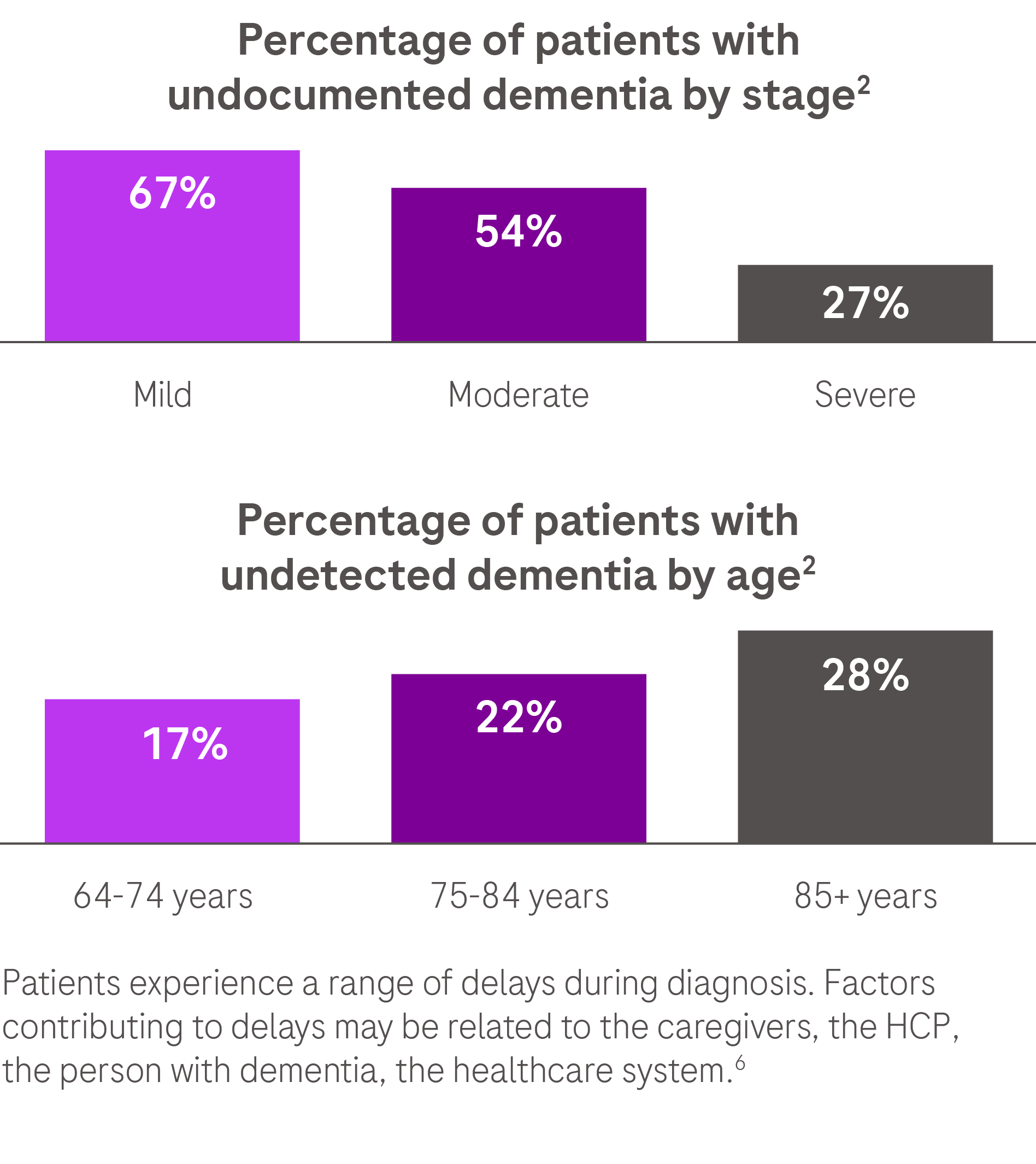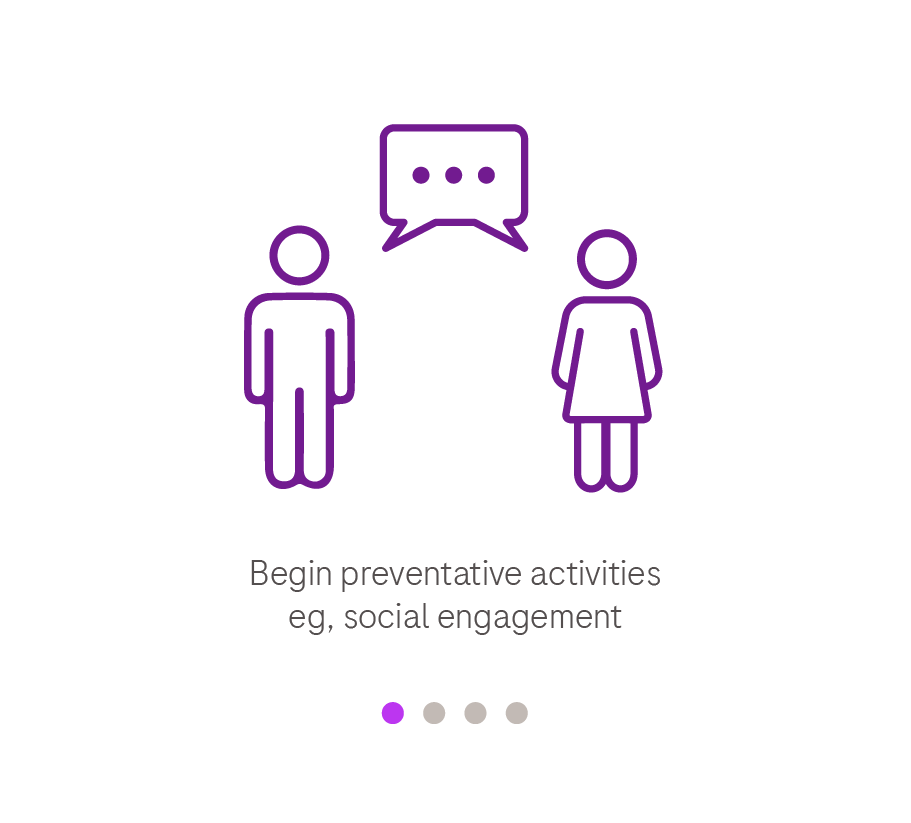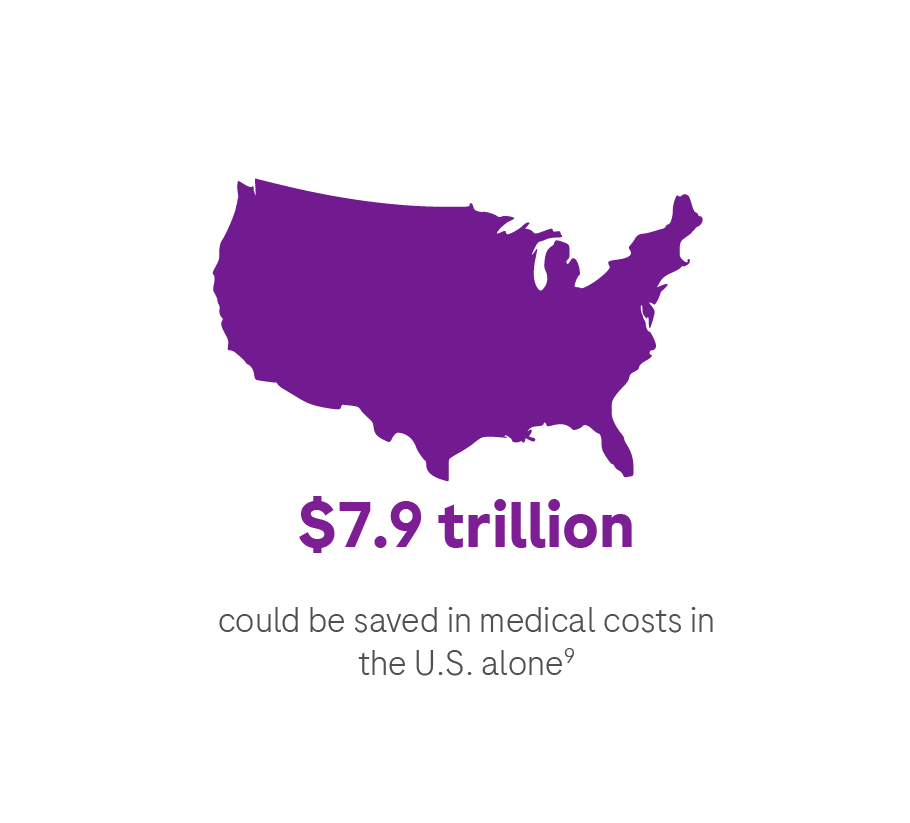Between 50% and 75% of people with dementia have no formal diagnosis.2-5 Yet
53% of family members report that they would have preferred an earlier diagnosis to help prepare for the future.6
A confirmed diagnosis is important to both patients and their families.7 It can reduce the anxiety of not knowing whether symptoms are due to Alzheimer’s disease (AD).7 In fact, a survey revealed that more than 90% of people would want to know the cause of their symptoms.1



